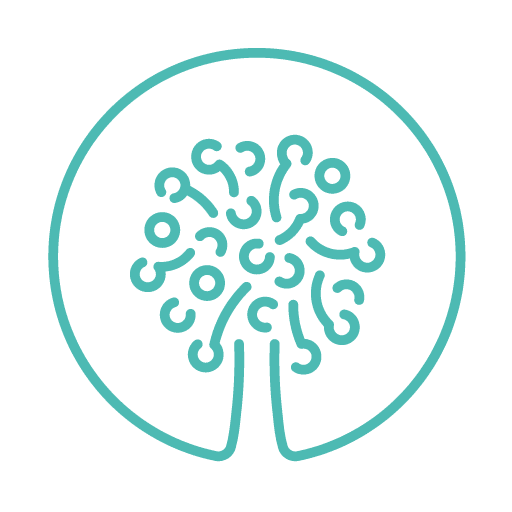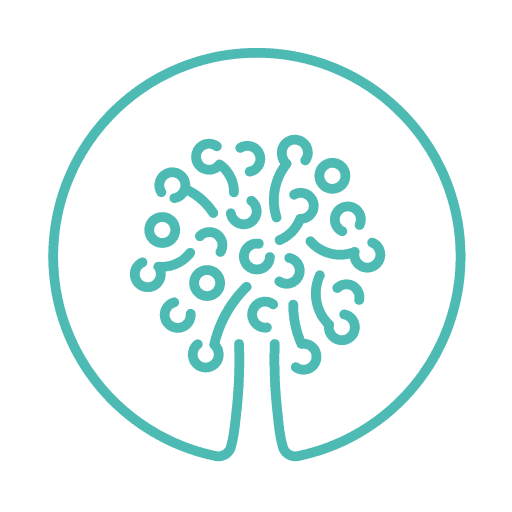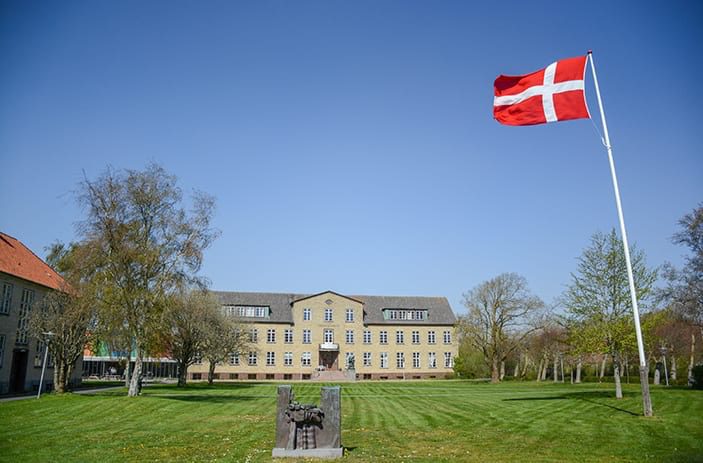
04 Apr Welcome home - Filled with experiences and new energy
Dear all,
After two weeks travelling around the world on cultural trips, all students are now back at Ranum Efterskole. The school is once again buzzing with life, laughter and the joy of reunion - and the backpacks are filled with memories from big cities, rainforests, deserts and meetings with local young people around the world.
We also had a good laugh at this year's April Fool's joke: Ranum as the world's first circus-efterskole! With caravans in the car park and rumours of clown training and horse acrobatics, it was almost believable.
In this week's newsletter, we also take a closer look at why we travel - and how cultural subjects strengthen students' global outlook, sense of responsibility and understanding of a sustainable world.
We wish everyone a very good weekend.
Welcome home - the school is full of life again!
After two weeks filled with unforgettable experiences around the world, all Ranum students have now returned home from their cultural studies trips. From mountain peaks, safaris and city adventures to school visits and local culture, the backpacks are filled with memories and the students have gained new perspectives and stronger communities.
The school has been almost empty for two weeks, but now the corridors are alive again, laughter in the dining hall and the joy of reunion is everywhere. The students have much to share, and stories are already flying through the classrooms and common areas.
There is no doubt that the journey has left its mark - both in terms of experiences and friendships, but also in the energy and joy they have brought home. Welcome back to everyday life at Ranum - richer in the world and each other!
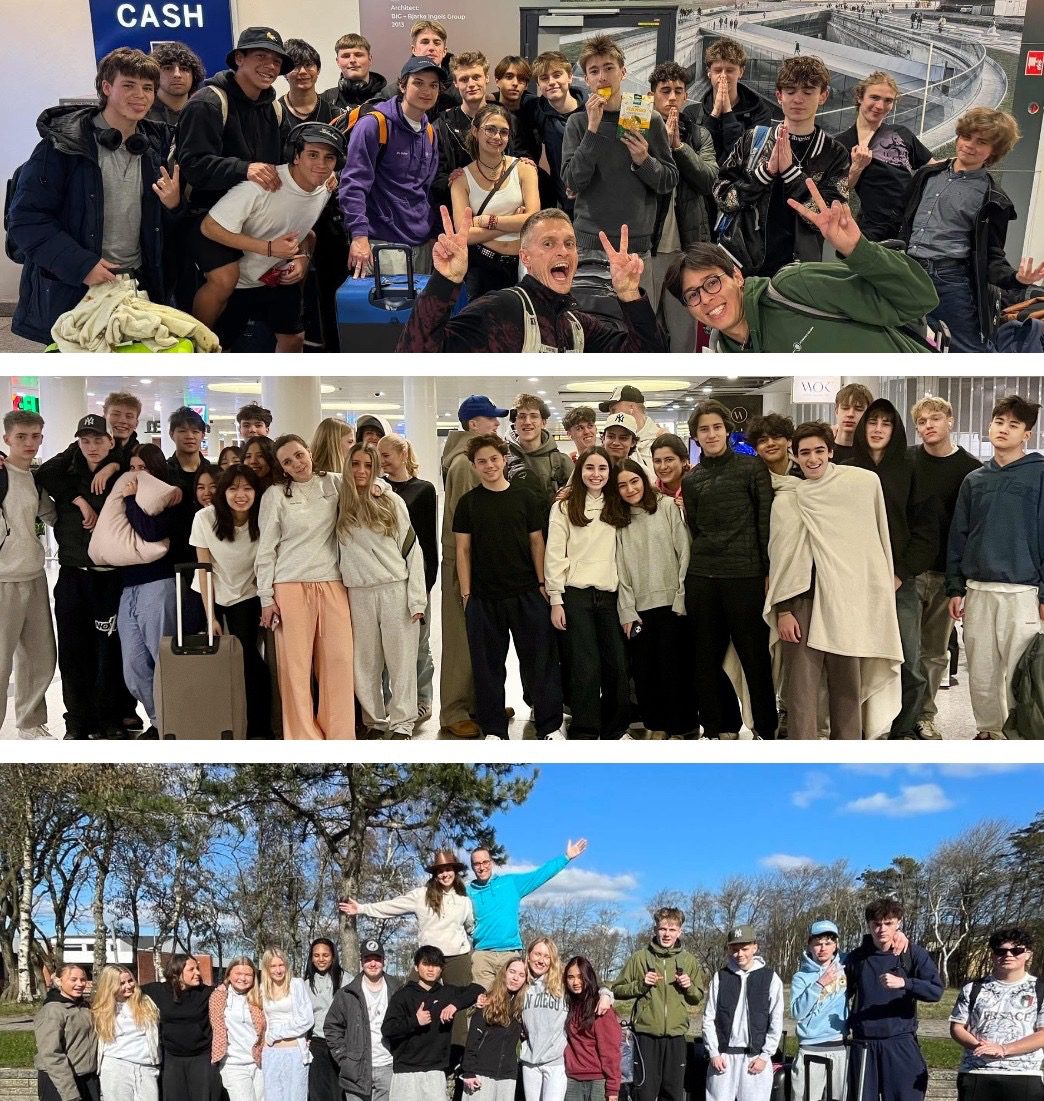
Ranum launches the world's first circus-efterskole - or do we?
It's not every day that the car park in front of Ranum Efterskole College turns into a real circus camp - but that's exactly what happened to students and teachers this week. Rumours quickly began to swirl: "Is this real? Are we going to live in caravans and learn to tame horses - and maybe fire?"
According to headmaster Olav Storm, Ranum was ready to open the world's first circus-efterskole in collaboration with the legendary Circus Mascot. And yes, according to the official announcement, students could now look forward to electives in juggling, clowning, fire-eating, acrobatics and, not least, life-threatening horse shows!
Grade 10 in particular was mentioned as "in good hands", as teachers would rotate between trapeze and blackboard teaching so that no professional skills were lost - and of course to keep track of the travelling students' biology reports.
Efterskolen's management was proud to announce that the school was fully booked until 2025 and therefore expanded with authentic circus campers as new student accommodation. "It's every teenager's dream to live a nomadic life together," they said with a smile.
However... one small "but": the Ministry of Education hadn't fully approved the new initiative - yet. But it was only a matter of time before the Ministry realised that robustness and clown experience go hand in hand.
Spoiler alert: The attentive reader probably guessed it already - it was all an April Fool's joke, of course!
But the pictures were real, and the idea? Well, you never know with Ranum.
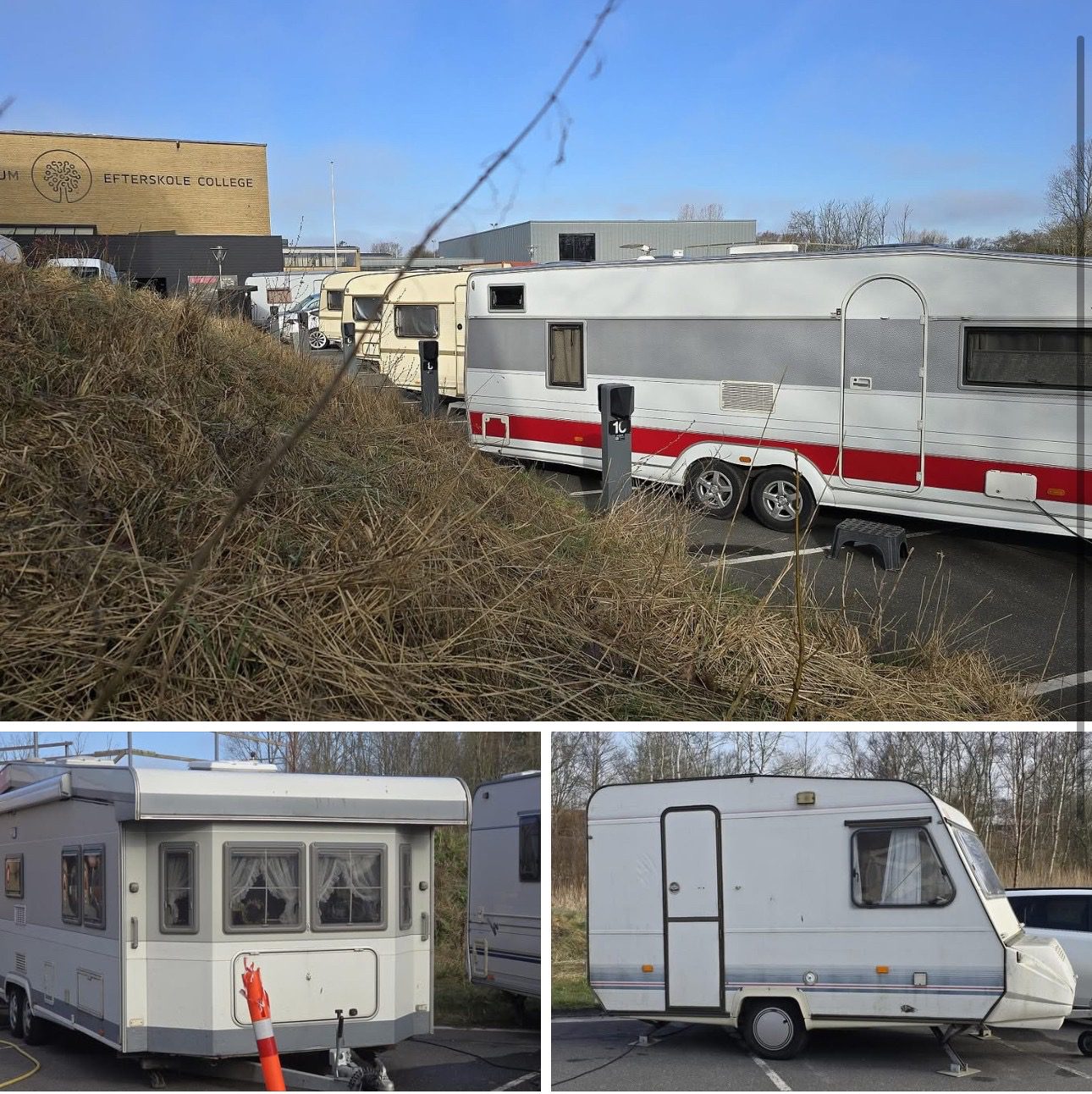
Cultural subjects - global outlook and sustainable education at Ranum Efterskole
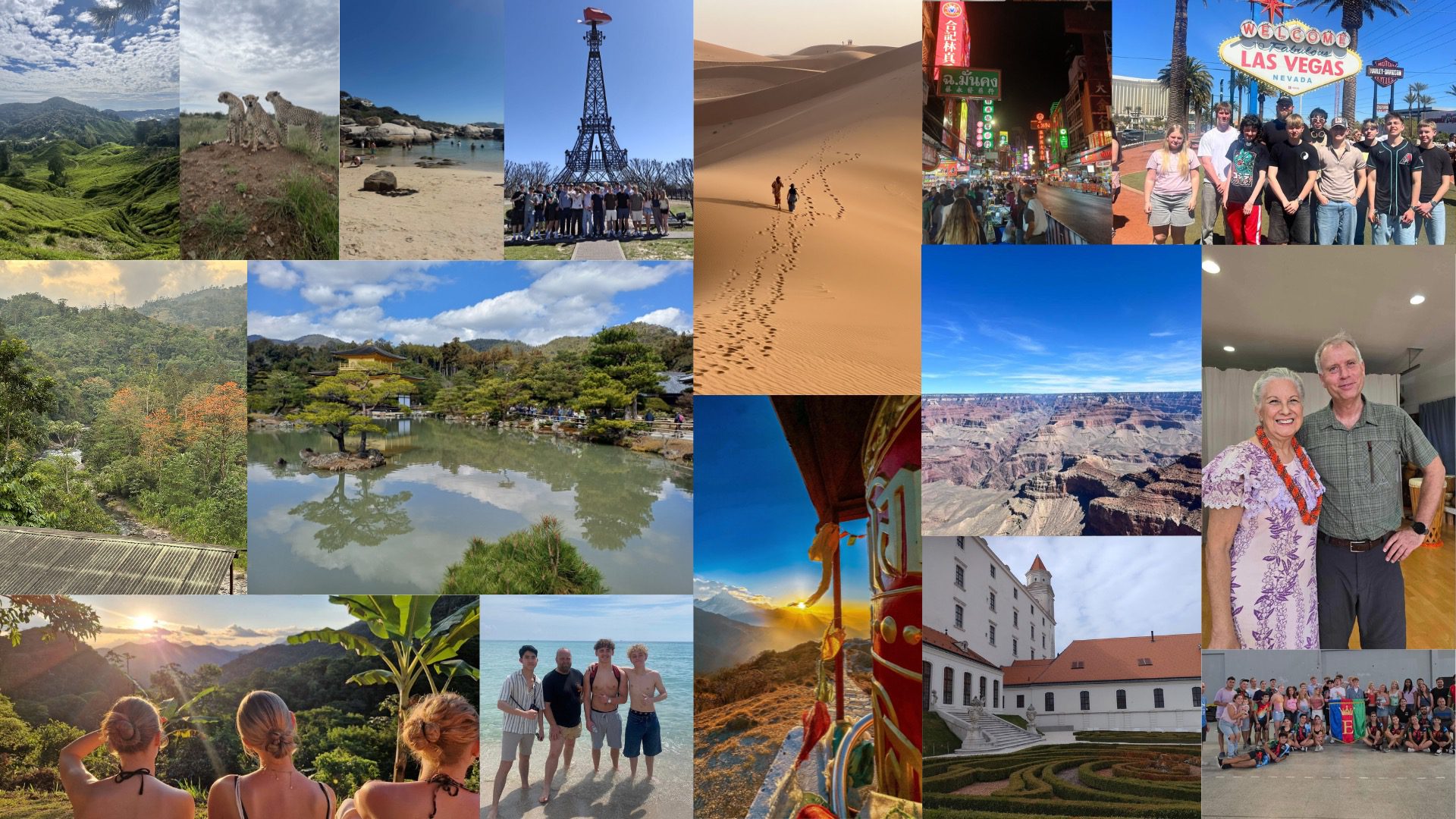
The world as a classroom
Imagine a classroom without walls, teaching on a dusty mountain path in Nepal or in the middle of a colourful marketplace in Ghana. This is the reality for students at Ranum Efterskole College when they take part in the school's cultural subjects. Cultural subjects are not just traditional school subjects - they are experiences and encounters that extend far beyond the school grounds. At Ranum Efterskole, we focus on meeting other cultures through cultural subjects. It is precisely the encounter with young people of the same age from, for example, the Nordic countries, Nepal or the USA that helps to shape the students' own identity. When students travel and immerse themselves in another culture, they gain a global perspective: they realise that the world is bigger than themselves and they learn to understand and respect people with different traditions and living conditions.
Global outlook through unique travel experiences
With cultural studies, the whole world becomes part of the curriculum. Through international cultural study trips, students experience first-hand the diversity of the world - from tropical rainforests to bustling metropolises. These experiences provide a global perspective that can't be learnt at home. When a student comes face to face with a foreign culture, their preconceptions and perspectives are challenged. Students develop intercultural competences and empathy by navigating new environments and forging friendships across languages and borders. The personal benefits are enormous: many students return home with a renewed curiosity about the world and a deeper understanding of both cultural differences and similarities. On a trip, abstract concepts such as globalisation, religion or history can suddenly become tangible - whether it's sitting around a campfire in Namibia listening to local stories, or visiting a village school in Nepal and participating in their everyday life. These moments make the world tangible and present for students, and they realise that they themselves are part of a global whole. It is precisely such experiences that characterise education at Ranum: We believe that meeting the world makes young people more open, tolerant and reflective.
Responsibility, autonomy and personal development
Another important element of cultural studies and travelling is personal responsibility. It takes courage and independence for a 16-year-old to venture out into the world without their parents by their side. From planning the trip to working together along the way, students learn to take responsibility - for themselves, for each other and for the tasks they encounter. On trips, situations arise where students need to show initiative and solve unforeseen challenges together. This could be anything from helping a homesick travelling companion to taking part in project work at a school abroad. Through these experiences, their confidence and maturity grow significantly.
However, the sense of responsibility extends beyond themselves. Ranum Efterskole is built on the values of curiosity, responsibility and engagement with the world. The more students learn about the world, the more they want to make a positive difference. When they see climate change with their own eyes on a melting glacier, or meet children their own age who live in very different circumstances, a sense of responsibility and agency is awakened. The world needs young people who care - which is why we make a virtue of educating curious and responsible global citizens. In practice, this means that students are not just passive tourists; they actively take on the role of global citizens who take responsibility. This personal development - going from being a student to becoming a responsible young adult with a global outlook - is one of the finest gifts that cultural studies gives our students in life.
Sustainability in education and travelling
A frequently asked question today is: Can we afford to send young people travelling the world by plane with the climate in mind? At Ranum Efterskole, the answer is yes - but only because we do it in a responsible and sustainable way. Sustainability permeates the preparation, realisation and follow-up of the cultural trips. We travel on the principle that the more you understand, the more you feel obliged to act responsibly. Therefore, we integrate climate awareness and social responsibility directly into our teaching and travelling activities. Here are some of the ways we think about sustainability in cultural subjects:
- Climate considerations: Even before travelling, students learn about sustainable lifestyle and travel. We calculate the carbon footprint of the journey and commit to compensate for it as much as possible. Specifically, students plant trees, collect waste and participate in nature conservation projects to offset air travel and transport. During the destination, the focus on the environment continues - for example, students in Costa Rica participated in reforestation and in the Coral Restoration project on Bonaire to restore coral reefs. Students learn that they can make a difference to climate and nature even while travelling.
- Social responsibility: The Cultural Journeys are as much about people as they are about places. To gain a deeper insight into other people's lives, we prioritise homestays - our students live privately with local families where they experience everyday life up close. They see what life can be like under different conditions than those they know, and they get to put a face to concepts like poverty and community. We also visit communities in disadvantaged areas - such as townships or villages - to openly discuss privilege, social inequality, democracy and freedom with the students. Students also participate in volunteer work while travelling. This could be helping at a game reserve in Namibia where they learn about the plight of endangered species, or distributing food to needy families in Bali. Through experiences like these, young people discover what it means to be compassionate and socially responsible - even beyond Denmark's borders.
- Responsible tourism: A guiding principle for all cultural tours is that we don't just travel for our own sake. Students learn to travel with purpose and care. We don't come as mass tourists, but as guests who want to benefit the local community we visit. In Costa Rica, for example, a typical day on the trip combined volunteering in the morning with cultural or nature experiences in the afternoon - students helped maintain trails in the rainforest, for example, before exploring the tree canopy via zipline later in the day. By partnering with local projects and schools, we ensure that our visits leave a positive impact. Students gain insight into responsible tourism, where you give back to the community and nature you visit, rather than just consuming experiences. This type of travel is in itself a learning experience in global responsibility and strengthens students' understanding of how to experience the world with respect and care.
Sustainability in practice: Students explore the rainforest via walkways high above the ground - an adventure focused on both nature experience and conservation.
A valuable part of modern efterskole training
In a modern, value-based efterskole education, we can't just allow cultural subjects and the accompanying travel - we should directly promote them. The world around us is calling for new generations of young people with an international outlook, cultural understanding and a strong ethical compass. Efterskoler has historically aimed to create whole people with knowledge, empathy and agency, and this is more true now than ever before. To prepare young people for the future, schools must give them the opportunity to experience the world, not just read about it.
At the same time, it must be done in a way that reflects our values. At Ranum Efterskole College, education is at the heart of everything we do - "No Ranum Efterskole without 'D' for education", as we say. That's why we insist on keeping cultural subjects as an integral part of the efterskole year. Travelling and cultural encounters are not a luxury good or a side activity, but a necessary part of students' learning. We see time and time again how students' development takes off after a cultural studies trip; they return home with greater self-awareness, academic motivation and a desire to engage with the world around them. The school's experience is clear: travelling is formative. That's why we will continue to travel a lot - because it works - but always with an eye to improving the way we do it. We are constantly exploring more climate-friendly ways of travelling and thinking even more about the content of our trips so that they harmonise with the climate, the UN Global Goals and our responsibility considerations.
When we balance this innovation with efterskolen's traditional values of community, creativity and democratic education, we get the best of both worlds. Cultural subjects demonstrate exactly this balance: they combine the classic efterskole idea of life education (learning about life and oneself) with the 21st century demand for global competences and sustainable awareness. The Efterskole Association and educational experts point out that the young people of the future must be educated as global citizens, for example through international exchanges and intercultural learning programmes integrated into the efterskole stay. With cultural subjects we respond directly to this call.
Conclusion: Meeting the world leaves a mark on lifet
After all, the cultural subjects at Ranum Efterskole help mould young people who understand the world and feel a responsibility for it. A efterskole is not just a school; it's a place of education where values such as commitment, curiosity and community are put into practice. International cultural travelling gives students memories for life - but more importantly, it gives them perspectives for life. In the encounter with other cultures, students mirror themselves and grow with the task. They learn to see opportunities rather than limitations, and they experience the joy of making a difference, whether it's for the climate, a local community or just one person they meet along the way.
Cultural subjects are thus a cornerstone of our modern efterskole because they combine knowledge with experience, and heart with action. When the next group of students set out into the world from Ranum Efterskole, it will be with a backpack full of both books and sustainable values. They go out as students, but return home as globally aware young people - ready to bridge cultures and contribute positively to our common future. And that is the essence of why cultural studies is an important and meaningful part of the efterskole programme - today and tomorrow.
Thank you for reading. We hope you share our passion for youth education, international competences and sustainable learning. At Ranum Efterskole, we continue our journey towards new horizons, with students at the centre and the world as our classroom. See you out there!
Headmaster's column
Dear reader,
It is with great pleasure and satisfaction that we can once again report that the cultural study trips have gone well and safely. There have been cultural encounters at all levels, from the very close encounters of private accommodation and daily chores to the must-see sights. Students and teachers have absorbed and gathered cultural experiences and understanding of the world's diversity and challenges in 19 different countries. The result is a mosaic of impressions and, not least, stories that are now shared across the school, at home and in each individual's life story. Stories that testify to curiosity, openness and courage to take on the world at a relatively young age and in the Ranum education project. This year we have focused extra hard on getting the students ready for the intercultural encounters, and after the travelling we continue to focus on reflecting on the similarities and differences between "our" and "their" life and society. It provides a mirror for insight and understanding of the world. On the plane to Hawaii, I sat next to an American man in his 40s who was a professional gambler in Las Vegas, sold ammunition for automatic weapons to private individuals all over the world and - voted Republican in the last election. It was 5 hours of conversation with a distance of 5 cm, and an insight into many backgrounds of life in the US today. The experiences in Hawaii with 2 amazing colleagues and 26 curious students are still sinking in. As an adult, you experience the many impressions of the trip through the students, because we are there to frame their freedom and give them space to become braver and grow in the encounter with the unknown. The trips went without major incidents, one student had to be hospitalised and operated on for appendicitis in Malaysia, several had great difficulty understanding that sunscreen is a necessity, and 3 students got the impression from a former student that you could go to bars in South Africa, and that put an end to their 1TP5 year. A week after returning home, I have to admit that the 35-hour journey has also caused a lot of jet lag that ripples through the body and the young people experience this too, and many will only surface in everyday life again next week.
Olav Storm Johannsen, Principal
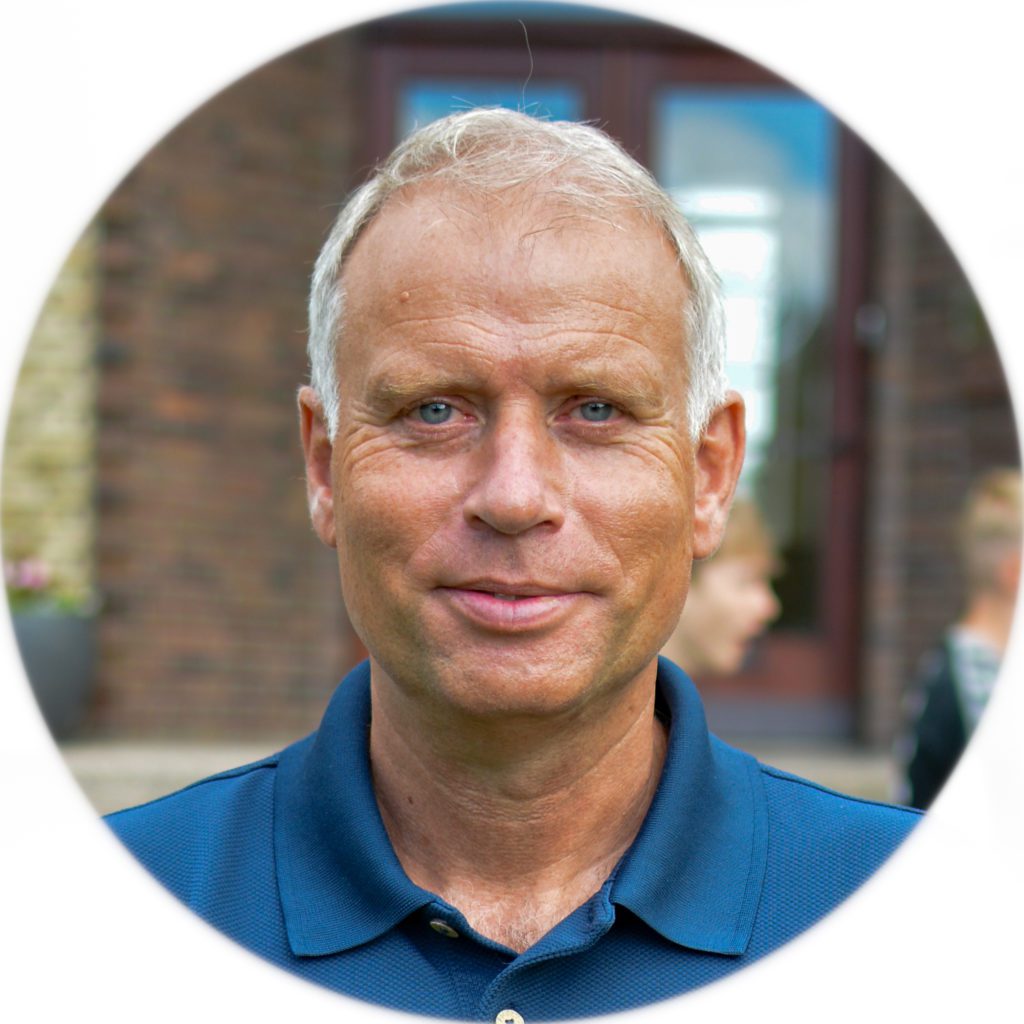
It happens:
Calendar
5.04.25-6.04.25 Friends weekend
Follow us on social media
Facebook – Instagram – TikTok – YouTube


